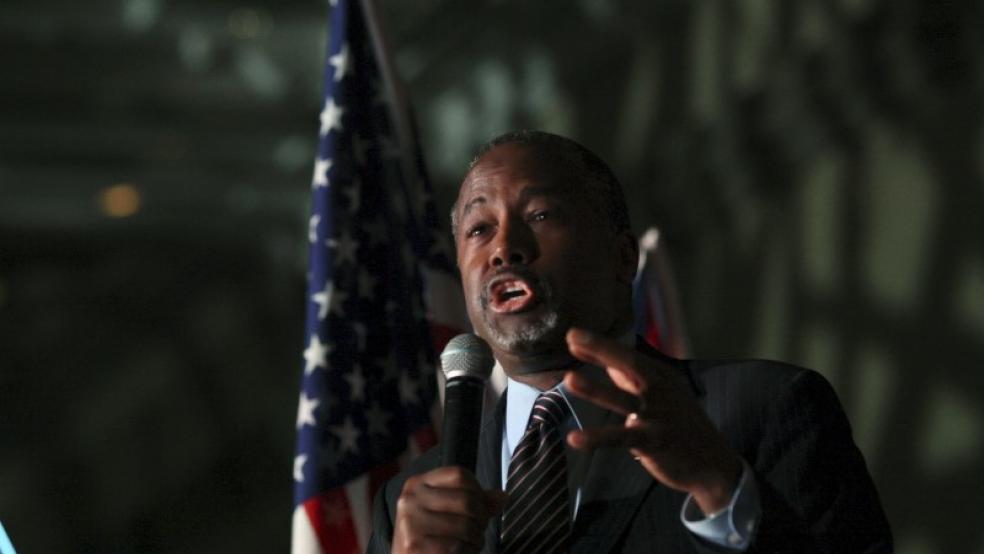Months of denouncing congressional Republican leaders by rank-and-file members and top-tier GOP presidential candidates may be taking a toll, as a new survey finds Republican voters are more disgusted than anyone else with how Washington is being run.
Congress’s approval rating has slipped to 11 percent, its lowest level this year, according to a poll released by Gallup on Wednesday. That’s just two points higher than the all-time low of 9 percent in November 2013 after the last government shutdown.
Related: Fact Checkers Working Overtime: Top Whoppers from the GOP Debate
While troubling, the figure that should alarm Senate Majority Leader Mitch McConnell (R-KY) and newly-installed House Speaker Paul Ryan (R-WI) – or any GOP incumbent – is only 8 percent of Republicans approve of the job they’re doing.
That’s less than Independents, with 13 percent, and even less than Democrats, at 11 percent. The anemic level of support is one point shy of the 9 percent Republican voters gave the Democratic-led Congress at the time of the 2010 midterm elections, according to Gallup.
“Usually, Congress' approval ratings are significantly higher among supporters of the majority party,” the survey notes.
Related: Trump Gets Thumped in Fourth GOP Debate
That was true at the beginning of the year, when the GOP had won back control of the Senate and 27 percent of Republicans approved of their representatives in Washington, but that number has steadily eroded since February.
One reason for the decline could be the incredible influence political outsiders seem to hold over the GOP right now. Real estate mogul Donald Trump and retired neurosurgeon Ben Carson, neither of whom have ever held elected office, are dominating the Republican presidential primary.
Recent polls show the duo eclipsing veteran politicians like former Florida Governor Jeb Bush and Ohio Governor John Kasich by double digits. Other contenders, including some who currently serve in Washington, have taken notice and made railing on Republican leaders a cornerstone of their campaigns.
Related: Christie Looks Past GOP Rivals in Undercard Debate to Focus on Clinton
For months, Trump has been calling America’s leadership “stupid,” “incompetent,” and that they’re “ripping off Americans.” His rants may be wearing thin by now, but the message stuck.
Sen. Ted Cruz (R-TX) in particular has made a habit of bashing what he calls the Washington “cartel” that stifles conservatives and used the debate podium, and the Senate floor, to go after McConnell. His steadily rising poll numbers suggest the strategy is paying off.
Cruz stuck to his script during Tuesday night’s GOP debate, repeatedly bashing the capital’s “crony” culture.
Other hopefuls, like Sen. Rand Paul (KY), New Jersey Governor Chris Christie and Louisiana Governor Bobby Jindal, added to the anti-Washington narrative. But it was an answer by former U.S. senator Rick Santorum of Pennsylvania that best captured the anger roiling the party right now.
Asked during the so-called undercard debate who in the Democratic Party he admired, Santorum replied, "You know who I respect in the Democratic Party? "You know why I respect them? Because they fight!” he shouted. "Because they're not willing to back down, and they're willing to stand up and fight and win. And so I respect them because they are willing to take it to us!"
That sense of disappointment could be another reason for the ebbing enthusiasm among Republicans, who thought that having control of both chamber of Congress would lead to legislative victories on issues like the Keystone XL pipeline, repealing some or all of Obamacare, and more recently, cutting federal dollars for Planned Parenthood.
Instead, Republicans have had their priorities filibustered by Senate Democrats or vetoed by President Obama.
The frustration voiced by Santorum and other 2016 candidates could have easily been espoused by any one of the roughly 40 members of the House Freedom Caucus. The hard-right group helped drive Ryan’s predecessor, John Boehner, into early retirement because they thought he didn’t stand up for their values and was too eager to cut deals with the White House on issues like the debt ceiling.
The Gallup poll, taken days after Ryan was given the gavel and Congress approved a budget deal that set federal budget numbers through 2017 and raised the nation’s debt limit, shows the Wisconsin lawmaker has his work cut out for him.
Not only must he try to calm a fractious House GOP conference, Ryan must also inspire confidence among Republican voters that their concerns are being addressed in Washington. The second task could prove critical ahead of next year’s presidential election when Democrats traditionally top Republicans in turnout.





